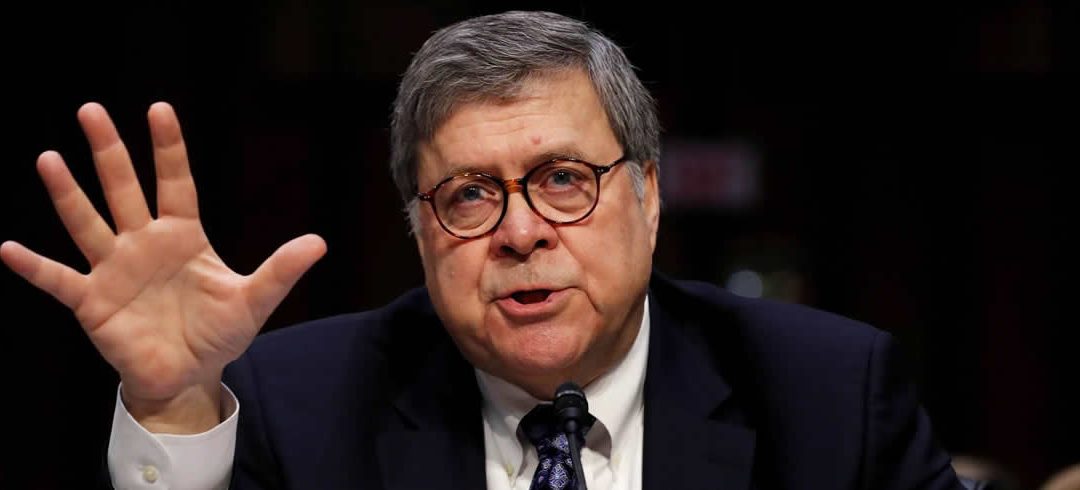CONCORD, N.H. (Feb. 20, 2019) – In the wake of PASPA’s Supreme Court overturn, states are more bold in asserting their rights when it comes to gambling laws. However, one major federal anti-gambling law still exists, and a new Department of Justice (DOJ) interpretation of the Interstate Wire Act has many gambling pundits on edge. As a result, the New Hampshire Lottery is suing the DOJ for overstepping its authority.
Though some outlets are reporting that New Hampshire’s suit against the US DOJ is an uphill battle, the potential for traction in the courts is high. The state claims that the application of the Wire Act to non-sports gambling could render their iLottery platform federally illegal.
As a result, New Hampshire is suing the DOJ, demanding a declaration from the agency that “the Wire Act does not prohibit the use of a wire communication facility to transmit in interstate commerce bets, wagers, receipts, money, credits, or any other information related to any type of gaming other than gambling on sporting events and contests.”
Why New Hampshire?
Fittingly, another northeastern state is leading the charge against the DOJ’s unilateral misapplication of established law re the Wire Act. New Hampshire, perhaps emboldened by New Jersey’s recent success in forcing the issue with PASPA, is taking the initiative to challenge the DOJ’s reclassification of the law in question.
Many analysts are surprised that New Jersey, which also oversees a statewide Internet gaming industry, did not act to challenge the DOJ before New Hampshire.
However, New Hampshire is home to the US’ second-oldest lottery, and because its iLottery product will as a matter of course route in-state gaming out of state (and back again) as data travels over the Internet, the DOJ’s reassessment of the Wire Act poses an existential threat to a crucial revenue-generating enterprise for the state.
Another reason that New Hampshire took the lead here is that it can appeal any loss in the case to the United States Court of Appeals for the First Circuit (which represents New Hampshire but not New Jersey). This is the same circuit court that ruled in favor of a sports-betting-exclusive interpretation of the Wire Act in 2014 as a result of United States v. Lyons.
What Is The Wire Act?
If you aren’t familiar with the Wire Act, a bit of background is in order. Very briefly, the Wire Act (aka the Interstate Wire Act, the Federal Wire Act, and — officially — the Interstate Anti-Crime Act) was concocted by the US Senate in 1961 at the urging of then-Attorney General Robert F. Kennedy. Once passed, the law was signed into law by the AG’s brother, President John F. Kennedy.
On paper, the purpose of the Wire Act was to dissuade or prevent organized crime from engaging in sports betting across state lines. To do this, the law made it illegal for any entity “engaged in the business of betting or wagering” to “knowingly [use] a wire communication facility for the transmission in interstate…commerce of bets or wagers.”
In other words, the Wire Act makes it unlawful for someone to accept wagers over the phone (or, by modern extension, the Internet) over state lines. While the Wire Act never applied to individual players placing bets, it does apply to gambling operators that accept wagers on a commercial level.
Historically, the Wire Act has been understood to apply only to sports wagering enterprises. This was the published premise of the bill during its time in Congress. Its limitation to sports betting was upheld in 2002 by the US Fifth Circuit Court of Appeals, which ruled that the Wire Act applies only to sports betting and not any other form of Internet-based gambling.
This understanding was further solidified by the DOJ in 2011, when the department determined that “interstate transmissions of wire communications that do not relate to a ‘sporting event or contest’ fall outside the reach of the Wire Act.”
In late 2018, the DOJ revised its interpretation, publishing its new take in 2019. The Office of Legal Counsel inside the DOJ now claims that the Wire Act applies to all forms of online gambling, and it’s giving Internet-based gaming companies 90 days (i.e. until April 15) to comply with the law.
How And Why The DOJ Reinterpreted The Wire Act
There is no good answer for why the DOJ felt compelled to unilaterally expand the Wire Act’s purview to all forms of gambling, but it’s likely a power play by the current administration. Power cannot exist in a vacuum. This is one of the oldest rules of government.
Thus, when a vacuum is created, there is a natural tendency for government to fill that void as soon (and as completely) as possible. Such seems to be the case here.
The Supreme Court’s elimination of PASPA was a humiliating blow to the enterprise that installed the law, and with regulatory power stripped overnight, the federal government needed to flex its muscles to show the states that it is still in charge.
The easiest way to do this? Simply “reinterpret” an existing law to keep you in the game. And that’s exactly what the DOJ did.
Semantics Over Substance?
The moral measure of a law’s value is in its substance. However, the strength of a law (or, alternatively, the weakness of a law) lies in the semantics it engenders.
If there are loopholes built into the law — or easy avenues by which to create loopholes — then these “technicalities” can be taken advantage of. The “spirit” of a given law is rarely stronger than the semantics of a law, and that could easily be the case here.
What The Wire Act Actually Says
Because semantics will be the foundation of arguments from both sides in the current Wire Act debate, it is important to understand what the Wire Act actually says. Section (a) seems to indicate an exclusive application to sports betting:
“Whoever being engaged in the business of betting or wagering knowingly uses a wire communication facility for the transmission in interstate or foreign commerce of bets or wagers or information assisting in the placing of bets or wagers on any sporting event or contest…”
Section (b) doubles down on the sports-betting angle:
“Nothing in this section shall be construed to prevent the transmission in interstate or foreign commerce of information for use in news reporting of sporting events or contests, or for the transmission of information assisting in the placing of bets or wagers on a sporting event or contest…”
The focus of the Wire Act sure seems to be on sports betting. Explicitly so, in fact.
What The Wire Act Doesn’t Say
Unfortunately, the Wire Act doesn’t say it applies exclusively to sports betting, and that’s where the federal government might have a valid — if tenuous — defense. Section (d) of the law’s text could be construed however the government wishes, giving them whatever legal wiggle room is necessary:
“When any common carrier…is notified in writing by a Federal, State, or local law enforcement agency…that any facility furnished by it is being used or will be used for the purpose of transmitting or receiving gambling information in interstate or foreign commerce…”
Note that here, sports betting is not specified, and the phrase “transmitting or receiving gambling information” is used. As gambling is a sweeping generality, it is easy to see the government’s argument here.
The strength of New Hampshire’s complaint will be based on precedent and what the Wire Act has for decades “been understood” to mean rather than what it explicitly means.
Is A DOJ Opinion Or Interpretation Legally Binding?
No, a DOJ or Attorney General comment or opinion is not legally binding in the sense that it cannot change existing law. Such a published comment is designed to inform lawmakers, executive government officials, and law enforcement of how to approach a given issue.
However, though not legally binding, statements by attorneys general or official platform positions of the DOJ are generally considered worth following.
Essentially, the DOJ is telling gambling operators what it thinks and how it will pursue legal action, shifting the onus (inappropriately) back to the impacted business to comply or pay for legal representation in an effort to dismantle the DOJ proclamation.
Outlook For New Hampshire’s Wire Act Lawsuit
The outlook for New Hampshire’s Wire Act lawsuit seems generally positive. The state has a number of high-court and DOJ statements on which to base the precedent of sports wagering exclusivity re the Wire Act.
That said, such cases can be tied up in the courts for years, and if New Hampshire doesn’t get an injunction against the feds during the case itself, the state stands to lose tens or even hundreds of millions of dollars during the course of its challenge.
New Hampshire is far from the only state that has an iLottery or established Internet gambling industry that would be adversely affected by the new DOJ Wire Act interpretation. There are 14 states with legal online lotteries and/or online gambling, so these 13 others could join New Hampshire and offer statements in support of the plaintiff.
In that case, the power of numbers might compel the DOJ to step back from its reinterpretation, but barring that, this case is destined to be fought in the courts over an extended period of time.
This may be counterproductive to the federal government, however, as with the loosening attitudes towards gambling and sports betting in general, it’s not out of the question that the Wire Act could be scrapped altogether. Only time will tell if this is a risk the feds are willing to take.
Advertising Disclosure
In order to provide you with the best independent sports betting news and content LegalSportsBetting.com may receive a commission from partners when you make a purchase through a link on our site.
News tags: Betting | DOJ | New Hampshire | Sportsbook | Wire Act

Andy has been writing professionally for nearly two decades, with the last three years being dedicated to his primary passions: sports wagering news and gambling industry analyses. A walk-on punter, Andy has a particular interest in professional football, baseball, and horse racing betting. Come early May, you can always catch Andy – clad in all white, mint julep in hand – on Millionaires Row at Churchill Downs. In his dreams.


 Bitcoin Sports Betting Sites
Bitcoin Sports Betting Sites Best Online Sports Betting
Best Online Sports Betting Famous Sports Bettors
Famous Sports Bettors States With Legal Sports Betting
States With Legal Sports Betting Sports Betting Events
Sports Betting Events




